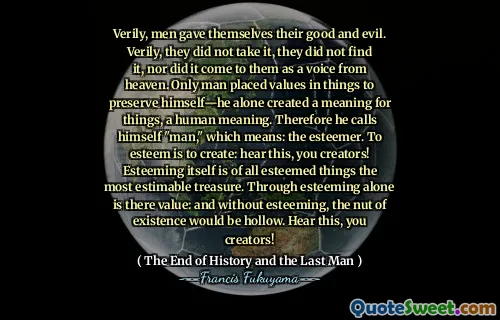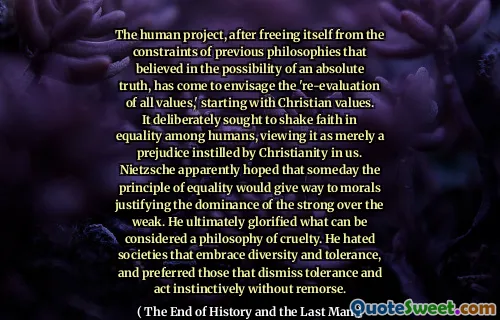"The End of History and the Last Man" is a philosophical work by Francis Fukuyama that explores the concept of political and ideological evolution. Fukuyama argues that the end of the Cold War signaled not just a shift in power but a culmination of humanity's ideological development. He asserts that liberal democracy is the final form of government, marking a significant point in history where no competing ideologies can effectively challenge it.
The book discusses how different societies have historically struggled with various forms of governance. Fukuyama suggests that the victory of liberal democracy indicates that societies may now converge toward this model. He also addresses concerns about the potential shortcomings of liberal democracy and the challenges it faces in the modern world, including nationalism and religious extremism.
Fukuyama reflects on the implications of this ideological victory for the future of humanity. He examines the relationship between democracy and human nature, questioning whether this system can fulfill deep-seated human desires for recognition and purpose. In doing so, he emphasizes the importance of addressing social inequalities and the need for a robust civil society to sustain a healthy democracy.
More »
Today Birthdays
1729 -
Edmund Burke
1949 -
Haruki Murakami
1954 -
Howard Stern
1876 -
Jack London
1993 -
Zayn Malik
1951 -
Kirstie Alley
1863 -
Swami Vivekananda
1923 -
Alice Miller
1987 -
Naya Rivera
1825 -
Brooke Foss Westcott
1944 -
Joe Frazier
1951 -
Rush Limbaugh
1964 -
Jeff Bezos
1978 -
Jeremy Camp
1628 -
Charles Perrault
1856 -
John Singer Sargent
1970 -
Kaja Foglio
1953 -
Rick Santelli
1986 -
Gemma Arterton
1968 -
Raf Simons
1958 -
Christiane Amanpour
1966 -
Olivier Martinez
1996 -
Ella Henderson
1917 -
Maharishi Mahesh Yogi
1949 -
Ottmar Hitzfeld
1928 -
Ruth Brown
1968 -
Heather Mills
1946 -
George Duke
1968 -
Rachael Harris
1923 -
Ira Hayes

